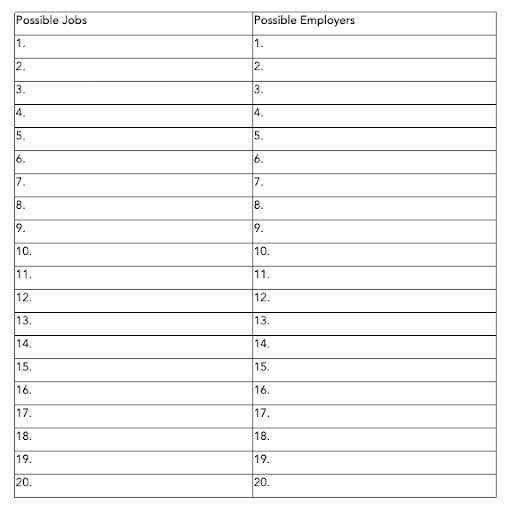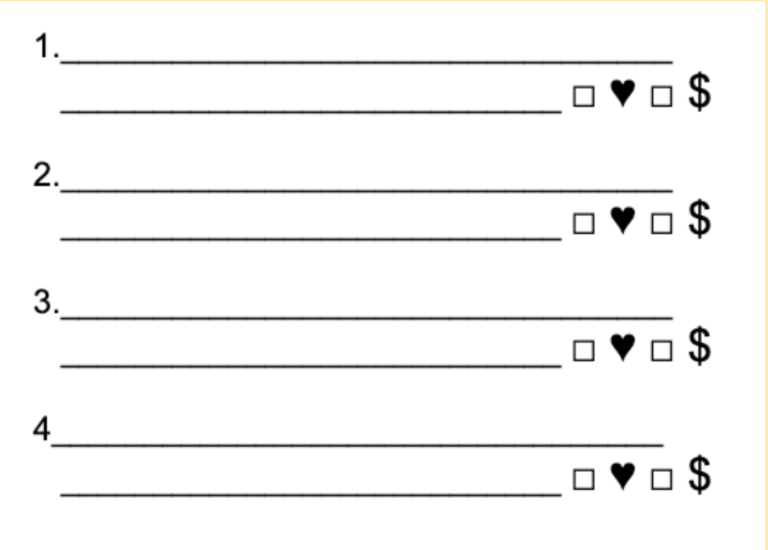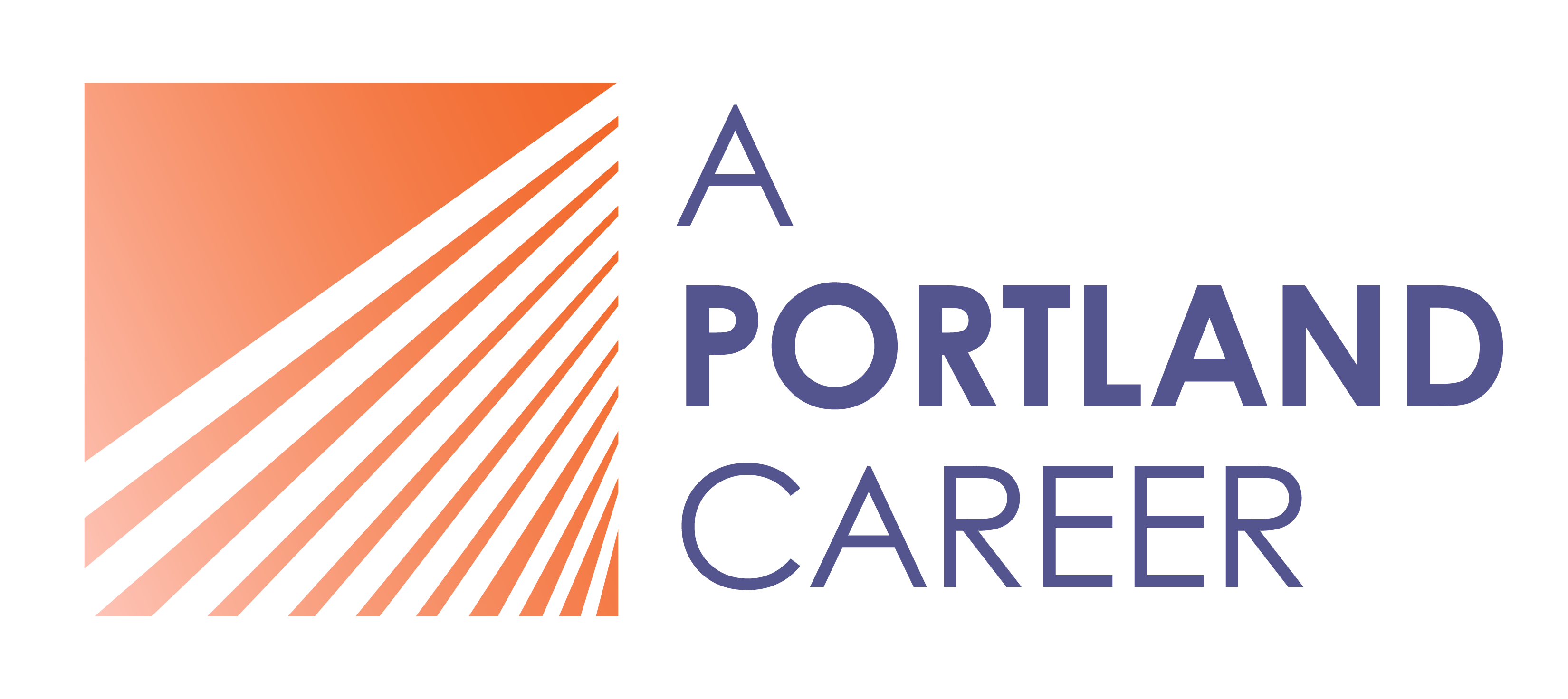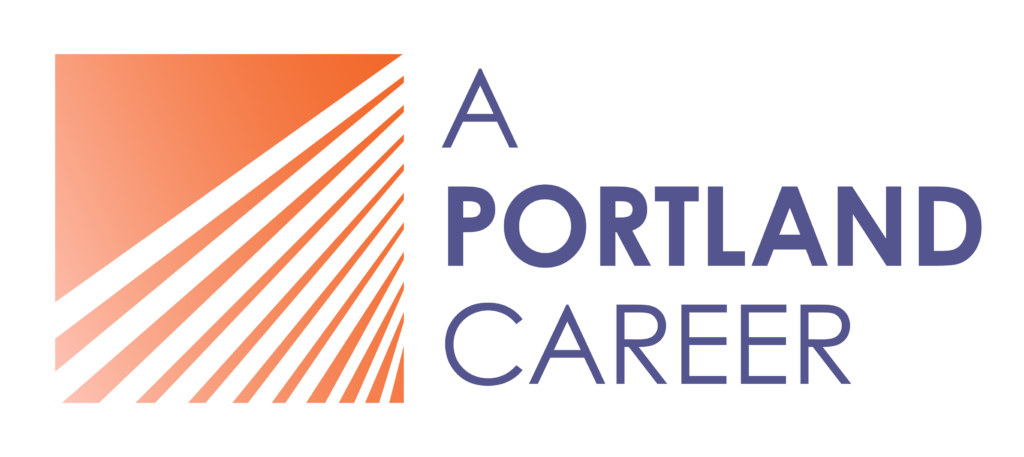Discover the 6 Best Career Exploration Websites to find job titles, requirements, salary range, and market outlook for the most promising career paths!
In this career exploration brainstorm, we encourage you to think expansively about possible career paths, and then create the ideal career short list for you!
Your Career Exploration Brainstorm: Deepen your Search!
By A Portland Career, and edited by Suzie Sherman and JD Duran
Ready to find your ideal career? We’re here to help you dig deeper

When we begin a career exploration, a job search, or think about our career goals, it often feels like such a serious, daunting endeavor. An imaginative brainstorm in which you can engage your heart and mind, and let yourself dream of the perfect kinds of jobs for you, can help you invite more options in. Think about the brainstorm phase as a first step in this process, and the short list as a deep dive into the three or four most viable career options for you. The good news is that a deepening of focus can still include what your heart wants, and not just what’s financially practical!
There comes a point in the process of looking for a new or different career when it might feel as if all doors leading to career satisfaction are not only closed, but reinforced with solid steel. This may be due to limiting your ideas of possible career choices too soon in the process. In these exercises, we encourage you to expand your thinking to brainstorm every possible career and corresponding employer (company, non-profit, university, etc.) that has ever interested you. Then, after you brainstorm with wild abandon, you’ll narrow your focus down to a few major contenders. These career exploration activities will combine your imaginative thinking and your critical thinking to deepen your career exploration!
<<Bookmark this page: To break down the solid steel and clear the way for your career exploration, keep this blog post in mind, so that you can come back to it while you’re generating ideas for your brainstorm. Jot down possible career ideas, potential companies or organizations, and even new business ideas, as they bubble up into your consciousness over the next week or two.>>
Home → Helpful Articles → Career Exploration → Your Career Exploration Brainstorm: Deepen your Search!
We think the most effective career exploration starts with knowing yourself, identifying your passions, and utilizing the best career search tools available. Here are some great posts to help you get started:
- How to Decide on a Career Path
- Getting Clear on Your Career Path: Discerning Your Interests and Passions
- Your Career Values Assessment
- Taking Your Skills Inventory: Self-Assessment Time
- Big Five Personality Traits
- The 6 Best Career Exploration Websites to Narrow Down your Job Search
If you want more guidance, get in touch, and we’ll help you organize your search and find a great new career path.

Tell your inner critic to take a hike!
It is crucial for this brainstorming exercise that you fire your critical internal editor—that nagging voice that limits you by saying, “You would need to go back to school to do that,” or “People will think less of you if you do that,” or even the snarky teenage favorite, “Yeah, right!” Be free and don’t censor yourself! And don’t be afraid to “think outside the cubicle.”
Let yourself be impractical and—please, yes—include fantasies you have had since childhood (A photographer who travels for National Geographic? Yes! A vegan chef who tours with a rock band? Yes, yes, yes! There are people who actually do this. Why not you?)
Of course, you can include more practical careers and ideas like nursing and computer engineering. If you don’t have a specific career in mind, simply pair skills with specific organizations that call to you (“Use my PR skills for Mercy Corps” or “Design websites for Weiden + Kennedy.”)
To stop yourself from editing out options based on fear, or an excessive emphasis on practicality, tell your inner critic, in a firm, calm voice: “Step aside. You’ll have your place soon, but not in this brainstorm.”

Find sources of inspiration for your career exploration brainstorm
The following activities may help you to shake loose some unexplored options about possible jobs and career opportunities. Utilize your friends and mentors, use the powerful career search tools available to you in books and online, and inquire into your own internal resources to generate ideas for your brainstorm.
Lean on your closest confidantes
Take a few close friends out for a beer or coffee/tea*. Brief them on your career exploration so far, and then ask them for suggestions of what they think you’d enjoy or be good at. All ideas are welcome at this stage, from the obvious to the wild!
(*Steer clear of tequila for this exercise, though; we want your list to be legible the next day!)
Follow-up tip: make sure to connect with these friends on LinkedIn, and ask them to point you to potential jobs and companies or organizations they think might be a good fit for you! And don’t forget these friends when it comes time to practice your job interviews later!
Discover the truly great career research, books, and online resources for career exploration
From personality type and occupational aptitude research, to really great books and online databases, you’re not alone in this career exploration. Get out of your own head, and dig into these resources.
- Review jobs lists that match your Myers-Briggs type in books like Do What You Are by Paul D. Tieger and Barbara Barron and the last section of Carol Eikleberry’s Career Guide for Creative and Unconventional People. If you are working with a career counselor, they can administer the Strong Interest Inventory, which compares your interests to more than 200 job titles. Doing this kind of self-assessment will help you better understand the kinds of jobs you seem to have an aptitude and interest in.
- Learn about the major career clusters to help you generate broad ideas about the industries that might feel like a good match for you. This kind of big picture career research will give you an idea of the job market out there and help you get out of the limitations of your own head!
- Use resources like O*Net or the Dictionary of Occupational Titles to familiarize yourself with the latest emerging job titles. A great resource is finding your Holland Code. Then, using O*Net’s Browse by Interest database, it’s easy to find job titles that match your interests. For example, if you like working with people (“S” for social,) figuring out how things work (“I” for investigative,”) and you’re artistic (“A,”) you might find inspiration in this O*Net Interest search.
Big blue marble: don’t limit yourself by geography, if that’s practical for you and for the jobs you’re considering. Remember: internet access, video conferencing, and, in particular, the impact of the pandemic on wide adaptation to online work, have broken through the constraints of geography in our work lives like never before!
Tap your internal curiosity and self-knowledge
Don’t rush the process. Give yourself at least a week to daydream a bit. Ideas just below your conscious awareness will emerge, particularly if you meditate, take long walks, journal, or interpret your dreams. Consider these questions as you think or write about your process:
- Think of the career of someone you know that has always piqued your curiosity. What intrigues you about that career and makes you think it is something you would enjoy? Keep that person in mind for possible mentoring, or shadowing their work, later.
- Do you have ideas for a business? If this is the direction your mind is going, please see Brainstorming Business Ideas (article coming soon!) to flush them out there.
- What did you want to be when you grew up? In elementary school? In middle school? In high school? In postsecondary, etc? Let those fantasies come through in your brainstorm process!
- If you went to college, what was your major? What was your “almost” major? (Your “almost” major might say more about your interests!)
- If you didn’t go on to higher education, what jobs, internships, or apprenticeships have you had that you really liked, but maybe didn’t quite have the career readiness for yet?
- What are the life skills and hobbies that you really enjoy? Your love of video games, problem-solving on a house repair, or geeking out on Google Calendar to organize personal projects could translate to real-life job skills!
- What were your job dislikes that you never want to do again?

Create your brainstorm
After you’ve given yourself some time and the spaciousness to dream, reflect on, and journal your wildest (or most mundane!) ideas, it’s time to sit down and get all those ideas onto your brainstorm list. Write down all the potential job titles or roles in the first column, and potential employers or work contexts in the second column.

Create the short list
Once you have let your imagination run wild in a broad, pondering brainstorm about all the possible jobs, career fields, career interests, or business ideas you might want to explore, it’s time to get more focused in your career planning. If you haven’t yet done the career brainstorm above, stop right now and go do that! It’s important to let yourself dream!
The purpose of this next exercise is to select up to four job titles, organizations or companies, or business ideas, in order to narrow down your future career path and really deepen your career planning. This selection will help you move from a broad exploratory mindset into a more focused research mode.
Sort your job and career brainstorm ideas into the two key categories: $ and <3
Now, go back through your brainstorm of possible careers worksheet and apply the two most important criteria to each idea in your list: which jobs or career paths or business ventures on your list have the most practical, financial potential, and which ideas are you just the most excited about? Cull the ideas in your brainstorm by putting a $ (dollar) symbol next to each idea that appears to be financially practical. Do the same for every idea on the list that really reflects your interests and passion by putting a “🧡” (heart) next to those. There may be a few ideas on your brainstorm list that you’ll need to do some quick research on in order to rate them. (For example: will it really take five years to become an architect? Or, how much student loan debt am I in for to become a psychotherapist?)
It is now time to select two to four from the list. Most likely, any career path ideas with both a positive financial outlook and a lot of heart will rise to the top. Include in this final cut at least one choice with a lot of heart and at least one that seems to be more financially practical.

Extra credit! We think this article by Shaina Waterhouse is a great way to think about the “heart” part of the job exploration equation. A lot of people talk about doing what you’re “passionate” about, but maybe it’s more helpful to think about how your curiosity can be a better signpost.
Reflect on the Short List
The purpose of reducing your career choices to a few is to go deeper into an internal and external glimpse of each possible future. What we mean here is to envision your career development from both the perspective of your own individual ideals, and also from the perspective of what the labor market will bear, i.e. whether you can make a viable living in one of these fields of work.
Again, it’s time to break out your journal, and think deeper about your imagined life if you were to live out each of these futures.
“Anaïs (Nin) suggested that I use writing to ‘try out’ the paths I could see myself taking and as a method of exploring the many directions to the arts. She said that writing allowed one to ‘act out’ what one could not actually live out.”—artist Judy Chicago
Some possible futures to journal about at this stage of your career exploration:
If you want to work for someone else:
- Describe your ideal boss
- Describe your ideal colleagues
- Describe your ideal work environment
- Describe your ideal day of work / week of work
If you want to start a business:
- Describe your ideal client
- Would you want to have employees or be a solopreneur?
- What kinds of businesses are similar to your idea?
- Describe your ideal work environment
If you find it hard to leave some of the options behind, start with six and do some preliminary career education for yourself online to learn about job descriptions, pay, benefits like health care, and the potential for professional development. Then, within a week or two, as you think about the most worthy candidates for a specific career path, select your final four. Try not to keep too many doors open–it can lead to aimlessly wandering in and out of each option without a deepening of your job search.
Final thoughts on creating your career exploration brainstorm and short list
Too often, the obstacles of what’s practical and what seems financially prudent get in the way of our dreaming of the ideal career path. As part of your career exploration, it’s essential to let yourself imagine what it would be like to do jobs that are tailor made for you. Part of this imagining can include journaling, taking a long walk, or enlisting a group of friends to pitch job ideas over a beer! There are also excellent personality type methods and occupational resources to help you hone in on the kinds of jobs you’d be best suited for. Let all of this be part of your process as you start with a big, broad brainstorm, and then focus in on the four best career path options for you to go deeper.
Key takeaways
- When you begin your brainstorm process, quiet your inner critic and really let yourself imagine the ideal kinds of work you want to do.
- Enlist resources like your close group of friends, the books and online referrals that are available for deep career path exploration, and find inspiration in following your curiosity, dreams, and your own life and work experiences so far.
- When you’ve gathered your research and your inspiration, remember to write it all down in your brainstorm list.
- Refine your brainstorm into your short list for deeper career path exploration. Remember to welcome both the practical ideas and the ideas that contain a lot of heart. When you’ve taken the time to do a deep brainstorm, you’ll find that the two overlap more than you might think.
- Let yourself imagine what life would be like in each of these most promising careers in your short list.
Related articles you might be interested in:
What Does Your MBTI Personality Type Mean for Your Career?
Find out your MBTI personality type with our Myers-Briggs career assessment, and learn what it means (or doesn’t mean) about your career preferences!
Crack The Holland Code and Unlock Your Career Aspirations
The Holland Code is arguably the most practical personality typology for job search. Crack the Code, and unlock your best career path matches.
Getting Clear on Your Career Path: Discerning Your Interests and Passions
Decide whether you should pursue a practical career or a passionate calling with our career interest assessment.





